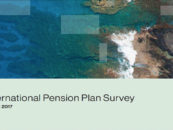Regtech is still a nascent niche segment within the Middle East’s fintech industry, though governments across the region are pushing for greater use of technology to enhance regulatory processes.
The United Arab Emirates (UAE), the region’s leader in all-things fintech, has somewhat emerged ahead of the pack in regtech innovation. This is partly due to the country’s public authorities which have been keen in adopting new technologies and the larger national push for the UAE to become a world leader in fintech innovation.
One prominent initiative undertaken by the public sector is the electronic-Know-Your-Customer (e-KYC) utility project. Launched in March 2018, the e-KYC project is led by the Financial Services Regulatory Authority (FSRA) of Abu Dhabi Global Market (ADGM) in collaboration with a consortium of the UAE’s major financial institutions including Abu Dhabi Commercial Bank, Abu Dhabi Islamic Bank, Al Ansari Exchange, Al Fardan Exchange, First Abu Dhabi Bank, and UAE Exchange.
The initiative aims to develop a blockchain-based e-KYC solution that would provide financial institutions with a single location where customer identification and verification can be performed once for a customer.
Over the past couple of years, the UAE has emerged as a major fintech hub in MENA, driven by the local governments which have deployed considerable resources to develop the local fintech ecosystem, and subsequently the insurtech and regtech industries.
The Dubai International Financial Centre (DIFC), a special economic zone in Dubai, launched Fintech Hive in 2017, the region’s first and biggest fintech accelerator and hub. This year, Fintech Hive is running the third edition of its accelerator program. The cohort comprises two regtech companies.
In Bahrain, the inaugural RegFact was held in Manama in February. The event, organized by Bahrain Fintech Bay, brought together more than 250 people, 20+ local and global industry thought-leaders and 100 attendees trained on artificial intelligence (AI) and automation, to discuss regtech innovation and adoption in the region.
Regtech startups in the Middle East
By far, the regtech industry in the Middle East underperforms international counterparts, including Asia, Europe and North America, and investors have rather been more interested in the region’s payments and remittances sector. In fact, MENA payments and remittances startups have attracted 45% of total fintech deals in the region over the past year, according to the Magnitt and ABGM’s 2019 MENA Fintech Venture Report, released last month, compared to only 4% for regtech companies.
The regtech ecosystem is rather small in the Middle East. Regardless, the region does have several home-grown regtech players. These include for example Card Switch, a Lebanese startup that works to eliminate card fraud and combat cash transactions. Card Switch’s flagship product is an application that connects all payment cards (credit, debit or prepaid) with the user’s smartphone allowing users to “switch on or off” their cards and decide when, where and how transactions should be authorized.
In the UAE, there is Azakaw, a regtech platform that provides complete compliance lifecycle support from client acquisition to regulatory reporting. Azakaw enables financial services firms globally to comply with regulations and improve profitability. The startup is part of this year’s DIFC Fintech Hive accelerator program.
Besides the Middle East’s few native regtech companies, the region has also begun attracting foreign firms looking to tap into the regional demand for regtech solutions.
These include for example Statys, a company originally from the UK, which delivers API-first microservices for loan origination and risk analytics, powered by AI. Statys, which has an office in Dubai, was accelerated by Startupbootcamp Fintech Dubai 2019, and was the winner of this year’s MENA Startup Challenge, sponsored by AWS, and the winner of the Seamless Fintech competition.
Fenergo, a firm headquartered in Dublin that provides software solutions for financial institutions to streamline the end-to-end client lifecycle management processes, expanded to MENA this year after being given the regulatory green light from the DIFC.
The firm said it intends to address the “unprecedented demand” for fintech and regtech in the region, which “provides enormous opportunities for growth.”
Featured image credit: Unsplash







